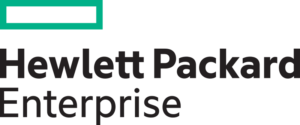
Yet we know that most organisations are being held back from their digital transformation objectives by infrastructure that relies on outdated manual processes for management. Their technology environment just isn’t suited for powering complex applications and coping with a new world of data.
An answer has arrived, it seems, in the form of hybrid cloud. By taking advantage of private and public clouds through a highly programmable solution, you can create a foundation that perfectly balances all of your competing needs for efficiency, control, security, performance and scalability.
Reducing risks and costs in 2020 and beyond
Early enthusiasm for public cloud is beginning to wane as more IT leaders and CFOs realise there are plenty of unseen costs attached to a cloud-first strategy. In one survey, 76% of enterprise cloud users indicated that optimising cloud costs was their number one cloud strategy in the next 12 months.
Not every workload is designed to operate in the public cloud, particularly if they generate large amounts of complex and sensitive data, and they have high availability requirements. There are also the questions of compliance and data sovereignty with every organisation having to contend with new security and privacy regulations such as the EU’s GDPR.
At the same time, organisations need the ability to quickly burst new applications and workloads without the need for provisioning new infrastructure. This is where public cloud provides its greatest value, as it enables organisations to quickly scale up their capacity when they need to capitalise on new opportunities.
From siloed complexity to balanced automation
Hybrid cloud is growing in popularity, not just because it enables a better balance of public and private cloud, but because it facilitates simplified management of your infrastructure environment. Gone are the days of having to manually configure environments for each application and conduct costly migrations of workloads between on-premise infrastructure and public/private clouds.
In the current environment created by Covid-19, we are also seeing a new demand for hybrid cloud solutions that enable IT teams to:
- drive revenue by seamlessly updating systems to improve performance for remote access workers.
- deploy new disaster recovery architectures given that the primary architecture and network use has dramatically changed.
- reduce risks by reviewing the security of the new architecture to incorporate distributed users and BYOD devices across networks.
We know that every business is trying to reduce costs while driving new revenue from their infrastructure and workload deployments. At Lexel, we’re committed to helping you select and implement the best cloud solutions for your business to create a truly integrated IT environment.
With Lexel and Hewlett Packard Enterprise (HPE) as your hybrid cloud partners, you can begin achieving seamless integration between all your clouds, with the ability to automate your on-premises infrastructure and connect to public cloud when the time is right. With next-generation cloud management tools, you can begin creating the visibility and control you need for managing each workload’s security and compliance requirements – while creating a foundation for unprecedented operational agility.
Our team of hybrid cloud experts will help you remove the need to manage multiple cloud configurations and subscriptions to ensure that every workload is in the right place – for the right balance of price, performance, and protection. Get in touch with us today to begin creating your organisation’s engine for future growth.

